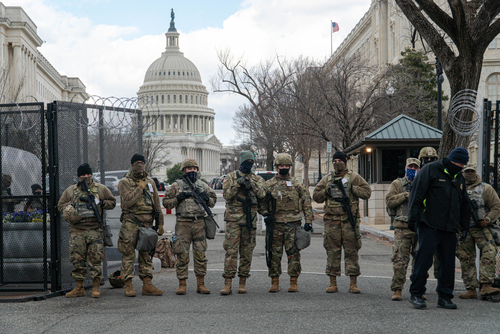A new policy threatens local governance in Washington, D.C., as President Trump considers deploying the National Guard to curb crime, sparking debates over federal overreach.
Trump’s Response to Crime in D.C.
On August 6, 2025, President Donald Trump publicly announced his consideration of deploying the National Guard to Washington, D.C., following the violent assault of Edward Coristine, a 19-year-old pro-Trump staffer. Coristine, nicknamed “Big Balls,” was attacked during an attempted carjacking near Dupont Circle. Trump cited this incident as a symptom of rampant crime in the capital, raising concerns about the city’s safety and governance.
This move by President Trump is seen as part of his administration’s broader “law and order” agenda, which has historically prioritized federal intervention in cities perceived as unsafe. The potential deployment of the National Guard and the threat to federalize D.C. policing marks a significant step in asserting federal control over local governance.
Debates Over Federal vs. Local Control
The President’s comments have reignited a long-standing debate over the autonomy of Washington, D.C. The city operates under the DC Home Rule Act of 1973, which grants it limited self-governance. However, Congress retains the authority to override local laws, creating an ongoing tension over the balance of power. D.C. officials, including Mayor Muriel Bowser, have been vocal in defending the city’s autonomy, arguing that local governance is best suited to address community-specific issues.
Despite Trump’s assertion that the city is lawless, D.C. officials have pointed to a reported 25% decline in overall crime rates compared to the previous year. However, they acknowledge that carjackings and youth involvement in violent incidents remain areas of concern. This discrepancy between perception and statistical reality has become a focal point in the debate over the necessity and effectiveness of federal intervention.
Implications of Potential Federal Intervention
The potential federal takeover of D.C.’s policing has significant implications for both the city and the nation. In the short term, it could lead to heightened political tensions between federal and local authorities, as well as increased public attention on crime in the capital. Long-term consequences might include the erosion of D.C.’s home rule and set a precedent for federal intervention in other cities.
Trump wants National Guard to tackle crime in DC after violent attack on ‘Big Balls’ https://t.co/AcZPXkT4TS
— Daily Mail (@DailyMail) August 7, 2025
The proposal has also sparked discussions about the broader impacts on civil liberties, urban governance, and national debates over crime and policing. Critics argue that federal intervention could undermine local accountability and inflame existing tensions, while supporters believe drastic action is necessary to restore order and public confidence.
Sources:
Fox News reporting on Trump’s statements and the assault
Official White House and Department of Defense documentation on National Guard deployment authority
Click this link for the original source of this article.
Author: Editorial Team
This content is courtesy of, and owned and copyrighted by, https://ourpatriot.com and its author. This content is made available by use of the public RSS feed offered by the host site and is used for educational purposes only. If you are the author or represent the host site and would like this content removed now and in the future, please contact USSANews.com using the email address in the Contact page found in the website menu.








